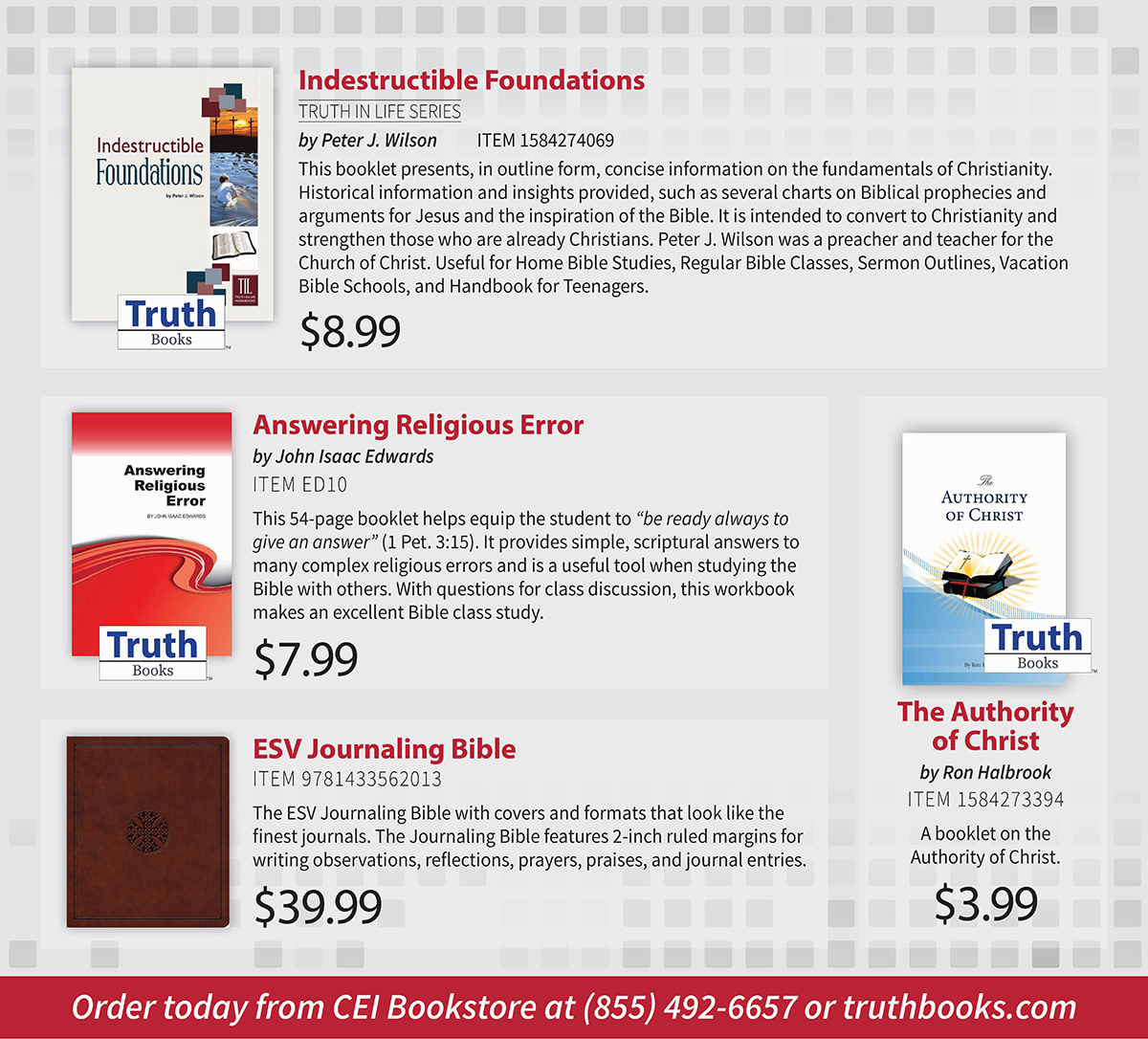

by Richie Thetford
Synopsis: Revisiting the theme of "Bible Authority," Richie emphasizes the need for seeking a "Thus saith the Lord" for all that we preach and practice.
All men must recognize the need for authority in everything we do. If you were to take your vehicle to an auto mechanic and instruct him to put in some spark plugs, but he also worked on the transmission and gave you a bill for $2,800.00 because he felt that you needed some work done on the transmission, you know that he did not respect your authority. Since you did not authorize that work to be done, you have no obligation to pay for any of the extra work that he performed. What if you instructed for your living room carpet to be replaced with dark brown carpeting before you went away for the day, and returned to find that not only was the living room carpet replaced but also two bedroom carpets were replaced with green carpeting? Your authority was once again ignored because carpet was added, and the color was changed without your authority. If a gasoline station were to guess at what to charge you rather than measure out the gasoline by a definite standard gallon, you would be upset. All men recognize the need for authority in secular matters, but what about religion? Don't you think God has given man a standard to go by in the realm of religion? The Bible says:
All Scripture is given by inspiration of God, and is profitable for doctrine, for reproof for correction, for instruction in righteousness, that the man of God may be complete, thoroughly equipped for every good work (2 Tim. 3:16-17, NKJV).
Jesus performed many signs, wonders, and miracles, prompting people to come and ask Him, "By what authority are You doing these things? And who gave You this authority?" (Matt. 21:23). These people recognized that authority is needed. In Colossians 3:17, the Bible teaches, "Whatever you do in word or deed, do all in the name of the Lord Jesus." All the things we do in word (what we teach) and in deed (what we practice) must be done in the name of the Lord (which means by the Lord's authority). To do something in anyone's name means to do it by that person's authority. To go beyond the doctrine of Christ (2 John 9) is to act without the authority of Jesus Christ (Gal. 1:6-9).
Whenever two individuals disagree on anything religiously, the religious disagreement stems from either (1) a lack of respect for the authority of Christ, or (2) an ignorance of how to properly establish Bible authority. There is no excuse for anyone who disrespects God's authority. In the denominational world today many examples of "disrespect" for God's word can be seen. The attitude is, "wear my name," or "have the kind of music that pleases you," and "let the church be any kind of organization which pleases people." There have even been others who have gone so far as to say, "We don't need Bible authority for everything that we do." However, there are still some today who do respect God's word and desire to do all things that are pleasing to Him! These are the types of individuals with whom we should have fellowship.
The Old Testament is filled with example after example showing us how we should have genuine, fearful respect for God's authority. Leviticus 10:1-2 says, "Nadab and Abihu, the sons of Aaron, each took his censer and put fire in it, put incense on it, and offered profane fire before the Lord, which He had not commanded them. So fire went out from the Lord and devoured them, and they died before the Lord." We can see that these two added to God's word. They did not respect His authority. We can also see examples of this in Cain and Abel (Gen. 4:2-9), King Uzziah (2 Chron. 26:9-21), and Uzzah (2 Sam. 6:3-8). These examples are for our learning (Rom. 15:4) and demonstrate that we must have respect for the authority of God in all that we do religiously.
There are three ways in which to establish Bible authority. The first is a command, which is a positive statement or a requirement. An example of a command can be found in Mark 16:16. The second is an approved apostolic example. The New Testament contains an example of this type of Bible authority in Acts 20:7, where we are told when to take the Lord's Supper. The third way to establish Bible authority is a necessary inference, which is something that is implied by Scripture. An example of this can be found in Matthew 3:16 which says: "When He had been baptized, Jesus came up immediately from the water; and behold, the heavens were opened to Him, and He saw the Spirit of God descending like a dove and alighting upon Him." This verse states that Jesus "went up" from the water. How do we know that He went down into the water? The answer is inference. In Hebrews 10:25, an assembly is commanded. By inference, a place to assemble is required. To be pleasing to God, we must ensure that all we do religiously is based upon His will and not man's traditions.
Author Bio: Richie has been preaching for twenty-seven years and has labored with the Poudre Valley church of Christ in Fort Collins, CO for seven years. He and his wife, Malinda, have three children. The church website is poudrevalleychurchofchrist.org. Richie’s website is thetfordcountry.com. He can be reached at richiethetford@gmail.com.
